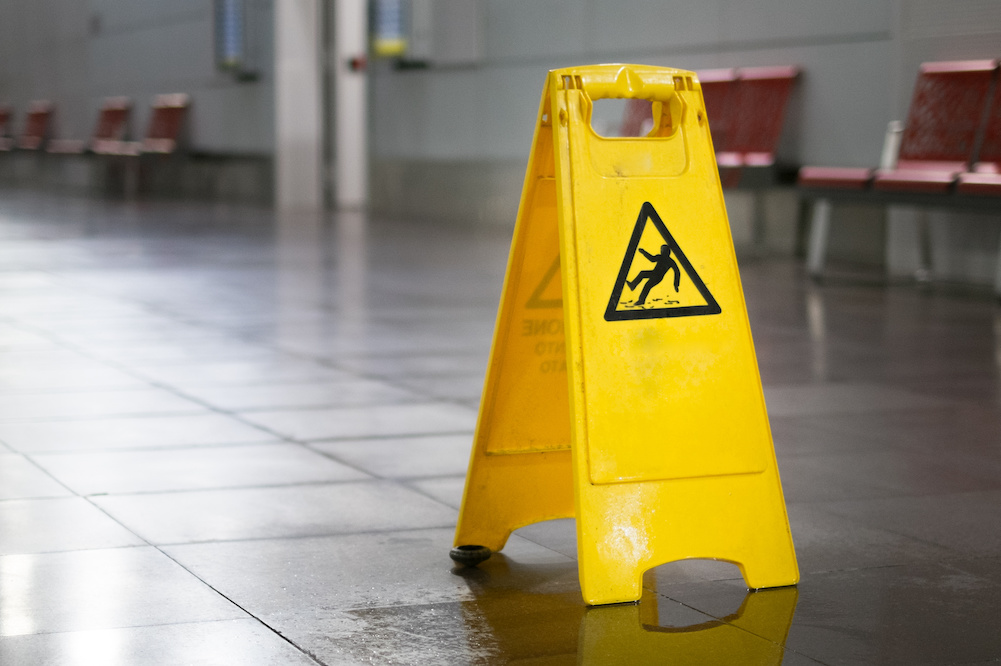How do business insurance claims work?
Filing a business insurance claim is how you ask your insurance company to help you recover from a covered loss.
The word “covered” is important. The incident — an accident with a company vehicle, a slip and fall injury at your office, a thief walking away with valuable tools — must be something the insurer has agreed to pay for when you bought your policy. The policy is a contract to specify what’s covered as well as restrictions or exclusions.
Filing an insurance claim doesn’t necessarily mean you’ll be compensated for a loss. It just means your insurance adjuster will evaluate your claim, then determine whether your claim is covered.
To kick off the claims process, it’s your job to:
- Collect evidence.
- Provide timely notice of the loss to your insurer.
- Submit evidence supporting your claim.
- Work with the insurance adjuster to quantify the severity of the loss.
- Evaluate the insurer’s claim settlement offer.
You and the insurance adjuster work together to provide the information necessary to adjust the claim. They’re there to guide you through the process and respond to your questions and concerns along the way.
Business insurance claims examples
If you have general liability insurance, worker’s compensation insurance, professional liability, commercial auto insurance or commercial property insurance — or a business owner’s policy (BOP) that combines general liability and commercial property — insurance could typically cover events like these.
Note: These examples are just for illustrative purposes. Your policy document will determine coverage. In the event of a real claim, you’d work with an adjuster to investigate claims and coverage.
Customer slip and fall injuries
- Incident: A customer visits your carpet and flooring store, and while walking down the aisle their foot catches on a carpet roll. They trip and fall; their head hits the floor and they’re taken to the ER by ambulance.
- How insurance could help: If you own the store and you have general liability insurance, your policy could help cover the cost of the customer’s ambulance ride, an expensive medical exam, x-rays and a knee brace. It can also provide a legal defense if you are sued by the customer.
An employee gets injured on the job
- Incident: An employee falls off a ladder at a job site.
- How insurance could help: Your workers’ compensation insurance, which is required in most states, can help to defray an employee’s medical costs. If the person incurs bills for a hospital stay, doctor’s services, medicine or physical therapy, your policy may help cover them. It can also help protect against lawsuits from injured employees.
An accident with the company vehicle
- Incident: You strike another vehicle while driving your company-owned truck.
- How insurance could help: If you own a business vehicle, your commercial auto insurance can help repair or replace your car or truck and help cover your medical bills. If the accident is your fault and the other driver sues you, your policy can help pay for damage to the other vehicle and medical expenses for the injured driver and passengers. It can also provide a legal defense if you’re sued by the other driver or passengers.
A professional mistake
- Incident: A client discovers that you, an architect, made a critical measurement mistake in their blueprints. This causes project costs and timelines to double. The client files a lawsuit for their losses.
- How insurance could help: If you have professional liability coverage, your insurance could help pay for the client’s financial losses and your legal defense costs.
Burglary and theft
- Incident: Criminals break into your retail store and inflict significant damage to the store’s foyer and front door. They clean out your inventory and leave a huge mess behind.
- How insurance could help: File a claim under commercial property insurance, which often provides coverage for burglary and theft. After working with your insurer’s claim team, you could get reimbursed for the stolen merchandise, the cost of building repairs and the loss of business income while a carpenter fixes the storefront and new inventory arrives from suppliers.
Water and freezing damage
- Incident: Your custom woodworking business stores extensive equipment and supplies in the basement. Unexpectedly, the building’s sump pump fails, causing water backup, which damages tools, other equipment and raw materials, not to mention inventory of finished goods.
- How insurance could help: If you’re the owner, file a claim under your commercial property insurance policy. After you report a timely notice of loss, the insurer usually sends out a claims adjuster to inspect the damaged property and take photos. Determining the value of the damage is complex because of the many property types and loss of business income. You and the claims adjuster work together to reach a resolution.
Fire damage
- Incident: A welder at your auto repair shop mistakenly ignites stored supplies, sparking a fire. Although your insurance adjuster doesn’t believe the structure is a total loss, town officials order the shop’s building to be razed and replaced with a contemporary, code-compliant structure. Since the shop needs to be closed for months, your lost business income is considered part of the claim.
- How insurance could help: As the shop’s owner, you can file a commercial property insurance claim to help fund the construction of a new shop and help reimburse lost business income. The policy could also help pay for the reconstruction needed to bring the building up to current code.
If a covered incident happens to you, your business property, your employees or a customer, you could be very grateful to have an insurance safety net in place.
How to prepare to file a business insurance claim
Mishaps can happen at any time. Taking a few preemptive steps can save you time and make the claims process go smoothly.
- Compile a written inventory of your business assets. This should include:
- The name of each asset.
- When you purchased it.
- How much you paid for it.
- Photos of all assets with significant value.
Store this information off-site along with other essential documents.
- Identify your company’s major risks and then secure the right amount of business insurance to cover them. Get coverage from a quality insurer who understands your business.
- Update your policies every year. If your business risk profile changes, you can adjust your insurance policies as needed.
- Make an effort to prevent a business loss rather than suffer a loss and file a claim. Invest in tasks like:
- Regular building maintenance
- Contemporary building security equipment and practices
- Employee safety training
- Inventory protection
- An emergency response plan
7 tips for filing a business insurance claim efficiently
If you need to file a claim, these tips can help make your claims experience as positive as possible.
- Stay calm during and after the incident. In the aftermath of a business loss, keep your wits about you. First, assess the scope of damage or injury. Notify authorities if needed. Then, attempt to limit further damage by closing doors, shutting down equipment or locking down your facility.
- Document information. Write down and photograph loss details right after the event. Note exactly what happened, when and the extent of the damage. Make a note of witnesses, and photograph the entire scene while it’s fresh.
- Notify non-emergency parties. Your first call should be to local first responders. But your following calls should be to others involved in sorting the loss, such as your attorney, insurance agent, members of your incident response team (if you have one) and the building owner if you lease your space.
- Report your claim as soon as possible. Insurance policies typically define a minimum notice period, so file your claim as soon as possible. Your insurer will be better equipped to accurately assess damage, interview witnesses and issue a prompt claim settlement.
- Don’t touch the evidence. If you suspect someone committed a crime at your facility, don’t tamper with the evidence. Photograph it. And resist the temptation to start repairing damaged structures or items. You want to leave it as-is until the insurance adjuster arrives. However, if you need to make repairs to prevent further damage, do so. But make sure to notify your insurer about this as well.
- Review your insurance policy. Find your policy and read its fine print. Verify your limits of liability, which should be on the policy’s first page, the types of losses covered and any excluded losses. As you review this document, make a note of questions or concerns you’d like to discuss with your agent or broker.
- Work closely with your claims adjuster. Your adjuster has the key to unlock your insurance settlement. Respond immediately to their calls and emails and answer questions fully and accurately. Don’t hesitate to contact your adjuster with questions. In a productive relationship, you and your adjuster will most likely expedite the processing of your claim.
How to file a business insurance claim with NEXT
- Log in to your NEXT account.
- Tell us about your loss.
- Answer questions from one of our claim advocates.
- We’ll work together to resolve your claim.









